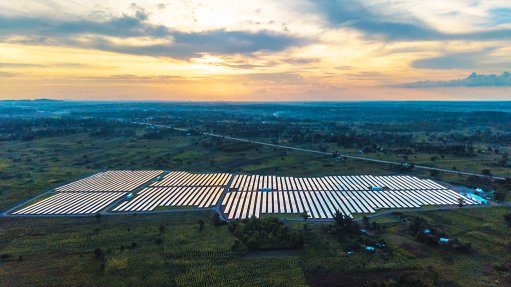Airline association and airliner manufacturers call for border reopening to be data driven
The representative body of the global airline industry, the International Air Transport Association (Iata), and the world’s two biggest commercial aircraft manufacturing companies, Airbus and Boeing, have jointly issued a press release calling on governments to make their Covid-19 border opening risk-management decisions on the basis of data. Modelling by Boeing and Airbus, in cooperation with Iata, has shown that borders can be opened without requiring international travellers to quarantine while keeping the risk of transmitting the disease low.
“Data can and should drive policies on restarting global travel that manage Covid-19 risks to protect populations, revive livelihoods and boost economies,” argued Iata director-general Willie Walsh. “We call on the [Group of Seven] governments meeting later this month to agree on the use of data to safely plan and coordinate the return of the freedom to travel which is so important to people, livelihoods and businesses.”
The effectiveness of vaccination in protecting people and reducing the risk of transmission of the disease to low levels has been established. As the evidence grows, the data on vaccine effectiveness is only reinforced.
A challenge is posed by unvaccinated travellers. Banning travel by unvaccinated people would, Iata argued, be “an unacceptable exclusion”. It would also be unnecessary. The association pointed out that, of 365 895 international passengers arriving in the UK during the period February 25 to May 5 this year, only 2.2% tested positive for Covid-19 during their compulsory post-arrival quarantine. (All these passengers had had negative polymerase chain reaction (PCR) test results before travelling to the UK.) Of those that tested positive during quarantine, more than 50% were from very high risk ‘red list’ countries; taking them out of the analysis would reduce the proportion of those who tested positive to 1.46%.
Airbus modelled virus transmission risk across the whole journey, taking into account more than 50 variables. These included the numbers of confirmed cases and fatalities in each country, Covid-19 test strategies, the length of flights, the time spent in airports, availability of onboard catering and air conditioning. Countries were divided into whether they suffered a high, medium or low incidence of Covid-19 cases. In all cases, the model assumed that air traffic was the same as it had been in 2019, before the pandemic. For travel from the high-incidence region of Latin America and the Caribbean to the medium-incidence country of Canada, even without PCR testing the incidence of Covid-19 in Canada would have increased by only one case per 100 000 of population during a period equivalent to quarantine (14-days). With a PCR test for each passenger, the incidence would have been less than one case per 100 000. For travel between medium-incidence countries (such as Europe to the US), the incidence of imported cases would have been less than one per 100 000. And for travel between medium-incidence and low-incidence countries (the example was Europe to Singapore), the results were the same as for travel between high- and medium-incidence countries.
Boeing modelled the effectiveness of test strategies. This modelling was concerned with unvaccinated travellers and accounted for the effectiveness of PCR tests and rapid antigen tests. The resulting data showed that Covid-19 screening protocols were as effective in countering the spread of the disease as were 14-day quarantines. Further, screening protocols reduced the risk to the country that was the destination for the travellers. Moreover, screening worked best when applied to passengers travelling from higher- to lower-incidence countries.
“There is no one-size-fits-all solution to manage the various levels of risk,” pointed out Walsh. “The economic and social cost of the blanket measures taken by most governments to date has been unnecessarily high. With this modelling, we are demonstrating that we can be smart with calibrated travel policies that address the risks, enable travel, and protect people. Everyone can respect a data-driven decision. That is the way back to normality.”
Comments
Press Office
Announcements
What's On
Subscribe to improve your user experience...
Option 1 (equivalent of R125 a month):
Receive a weekly copy of Creamer Media's Engineering News & Mining Weekly magazine
(print copy for those in South Africa and e-magazine for those outside of South Africa)
Receive daily email newsletters
Access to full search results
Access archive of magazine back copies
Access to Projects in Progress
Access to ONE Research Report of your choice in PDF format
Option 2 (equivalent of R375 a month):
All benefits from Option 1
PLUS
Access to Creamer Media's Research Channel Africa for ALL Research Reports, in PDF format, on various industrial and mining sectors
including Electricity; Water; Energy Transition; Hydrogen; Roads, Rail and Ports; Coal; Gold; Platinum; Battery Metals; etc.
Already a subscriber?
Forgotten your password?
Receive weekly copy of Creamer Media's Engineering News & Mining Weekly magazine (print copy for those in South Africa and e-magazine for those outside of South Africa)
➕
Recieve daily email newsletters
➕
Access to full search results
➕
Access archive of magazine back copies
➕
Access to Projects in Progress
➕
Access to ONE Research Report of your choice in PDF format
RESEARCH CHANNEL AFRICA
R4500 (equivalent of R375 a month)
SUBSCRIBEAll benefits from Option 1
➕
Access to Creamer Media's Research Channel Africa for ALL Research Reports on various industrial and mining sectors, in PDF format, including on:
Electricity
➕
Water
➕
Energy Transition
➕
Hydrogen
➕
Roads, Rail and Ports
➕
Coal
➕
Gold
➕
Platinum
➕
Battery Metals
➕
etc.
Receive all benefits from Option 1 or Option 2 delivered to numerous people at your company
➕
Multiple User names and Passwords for simultaneous log-ins
➕
Intranet integration access to all in your organisation

















